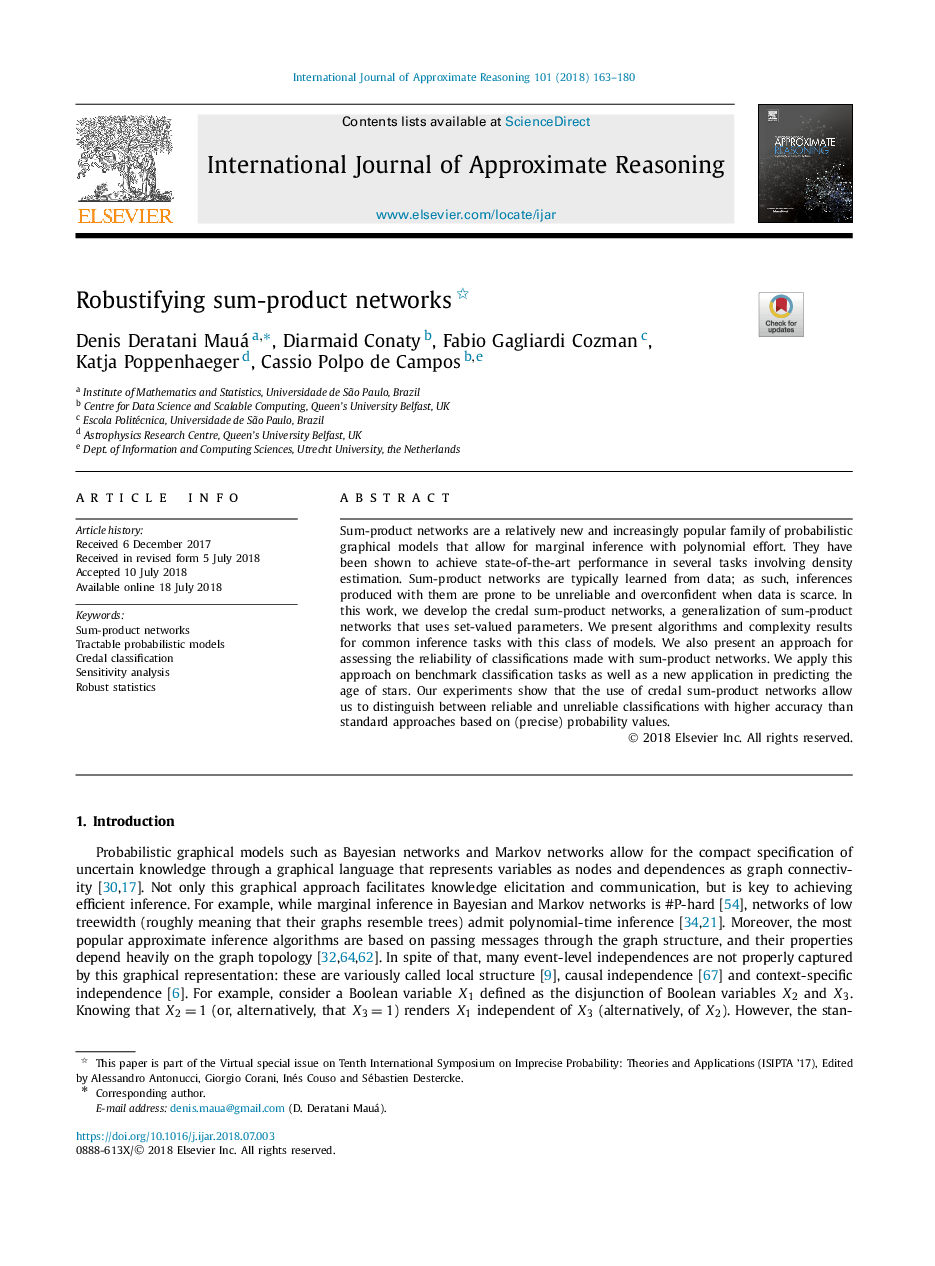| Article ID | Journal | Published Year | Pages | File Type |
|---|---|---|---|---|
| 6858746 | International Journal of Approximate Reasoning | 2018 | 18 Pages |
Abstract
Sum-product networks are a relatively new and increasingly popular family of probabilistic graphical models that allow for marginal inference with polynomial effort. They have been shown to achieve state-of-the-art performance in several tasks involving density estimation. Sum-product networks are typically learned from data; as such, inferences produced with them are prone to be unreliable and overconfident when data is scarce. In this work, we develop the credal sum-product networks, a generalization of sum-product networks that uses set-valued parameters. We present algorithms and complexity results for common inference tasks with this class of models. We also present an approach for assessing the reliability of classifications made with sum-product networks. We apply this approach on benchmark classification tasks as well as a new application in predicting the age of stars. Our experiments show that the use of credal sum-product networks allow us to distinguish between reliable and unreliable classifications with higher accuracy than standard approaches based on (precise) probability values.
Related Topics
Physical Sciences and Engineering
Computer Science
Artificial Intelligence
Authors
Denis Deratani Mauá, Diarmaid Conaty, Fabio Gagliardi Cozman, Katja Poppenhaeger, Cassio Polpo de Campos,
